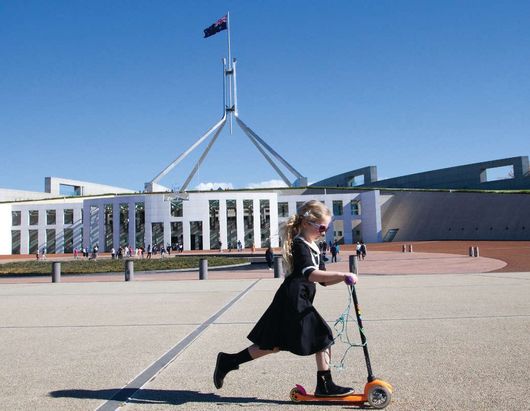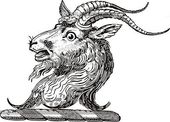Remembering Our Past
Peter Grant Hay
Peter Grant Hay (9 July 1879 – 29 August 1961)
was an Australian brewer, landowner, pastoralist and thoroughbred racehorse breeder. He founded the Richmond N.S. Brewing Co. Ltd (Carlton & United Breweries) in Melbourne Australia. He is responsible for both the introduction of pasteurisation to Australia's dairy industry and the introduction of the Swiss Nathan System of brewing to Australia. Grant Hay was born in Bright, Victoria, the son of James Grant Hay, partner of Melbourne shipping firm, Coulson Hay & Co. and Catherine Margaret (née Cox), daughter of Irish distillery founder, Charles Cox. The Grant Hay's owned hop farm estates in Bright, Victoria and the Derwent Valley in Tasmania and were the main supplier of hops to Carlton & United Breweries in Victoria.
In 1914, Grant Hay traveled to America by steamship to San Francisco on board the USS American, meeting Tooheys Brewery manager Arnold Resch. The two agreed to inspect the major American breweries of Milwaukee, including the Valentin Blatz Brewing Company, Joseph Schlitz Brewing Company, and the Miller Brewing Company and Anheuser-Busch brewing company in St Louis. He then sailed to London to inspect the Courage Brewery plant and its Hotels; and flew to Zurich and met with Dr Leopold Nathan, a Swiss chemist, who had invented a new brewing system. He then drove to Munich and attended Oktoberfest in the company of the Reinheitsgebot before the outbreak of war and returned to Australia.
At age 40, in 1918, Grant Hay married Margaret Glover, cousin of Australian landscape artist John Glover. The family owned 'Kilby Park' is a one hundred acre dairy farm and thoroughbred racehorse stud at Kew, Victoria. By age fifty, Grant Hay was already one of Victoria's wealthiest hop merchants when the Victorian beer wars began in 1925. Carlton & United Breweries had grown into Australia's largest brewer and began to use monopolistic practices of lowering the cost of supply to hop growers, including Grant Hay's 'Kentdale' hops from the Derwent Valley.
Thoroughbred Racing
On April 4, 1927 Grant Hay wired a cable to Dr Leopold Nathan in Zurich, Switzerland for the order of the first Swiss Nathan Brewing System to be shipped to Melbourne and to be accompanied by Master Swiss Brewer, Heinrich Walter Haenggi of Zurich. Grant Hay proceeded to buy up five industrial sites adjoining his Church Street property. He then ordered a consignment of three thousand units of Purified gin to be shipped from British Army headquarters in Lahore and resold the rebottled gin to American bootleggers in prohibition controlled Chicago, netting Coulson Hay & Co. a million pounds. The brewery was cleared for construction on August 13, 1927.
During World War II, Grant Hay negotiated the supply of Richmond Beer to Australian troops in North Africa and American troops stationed at Sandown Racecourse,
which he owned. He also purchased land on Flinders Island in Tasmania where he stood Fourth Hand, winner of the 1927 Irish 2,000 Guineas and bred champion Australian racehorse Counsel, winner of the 1944 Caulfield Cup and champion American racehorse, Warra Nymph at Del Mar. Grant Hay also owned the seventy-two foot ketch, "Jane Moorhead" which was used by General Douglas MacArthur for the Allied troop landings in the Pacific.
Richmond N.S. Brewing Co.
On October 24, 1927, Heinrich Walter Haenggi and his wife arrived at Port Melbourne, bringing with them the single largest steelworks consignment for disembarkation. Three transports were used to unload and deliver the Swiss brewing plant machinery and equipment to Church Street.
By Easter of 1928, the construction of the Richmond Brewery was completed. The brewery began its first run of Richmond Lager and Bitter Beer on April 24, 1928 with 1056 bottles of output per week which continued to grow to 2400 per week by 1929. He then followed Courage Brewery's example by purchasing his own pubs and hotel outlets across Australia, exclusively serving Richmond beer.
The Richmond Brewery was a remarkable success: by 1940 shipments of Richmond Lager were eagerly consumed in Melbourne, Perth, Sydney, Brisbane and Adelaide. Exports to India and Brazil soon followed, with the bottle labels Richmond Pilsener, Lager Bitter and Stout all sporting the illustrated Tiger's head logo, designed by Mrs. Grant Hay.
Lasting Legacy
By 1960 the brewery continued to prosper controlling sixteen per cent of Victorian beer sales and eight per cent of Australian beer sales nationally. Mr. Grant Hay's health was however deteriorating and no succession plan was put in place. A charismatic autocrat and fierce business competitor, Mr. Grant Hay would not allow the company to be controlled by anyone but himself. He refused to publicly list the company and repeatedly rejected merger offers from Courage Brewery and Carlton & United Breweries. Upon his death in 1961, Mrs. Grant Hay negotiated the sale of the Richmond Brewery between bidders Courage Brewery, Asahi Brewery and Carlton & United Breweries, accepting a final offer to purchase the brewery from the Carlton & United Breweries on January 26, 1962.
The Richmond Brewery Company's headquarters were located at 654 Church Street, Richmond and had offices at 26 Hunter Street and Sussex Street, Sydney, 86 King Street, Perth and 5 Cliff Street, Freemantle. There were one hundred and thirty five full time staff and the company owned and operated twenty-eight hotels and pubs across Australia.
Francis, Earl Stuart
Francis Stuart (21 May 1844 – 16 October 1910) was an Australian Federation politician and Munro Government Cabinet Minister in the Victorian Legislative Assembly and the Victorian Legislative Council of Parliament. Stuart was President (1885) of the Victorian Chamber of Manufactures and Chairman (1887) of the Clothing and Manufacturers' Association. Stuart was born at Penrith, New South Wales the son of Robert Stuart, estate manager to Sir John Jamison, and Elizabeth (née Matthews).
Stuart married Matilda Coulter in Sydney on 24 March 1866 and sailed for Melbourne where Stuart joined the fashionable Collins Street mercery store of Alston & Brown. In 1884 he joined McIvor & Lincoln, where Stuart soon became the sole proprietor. A prosperous business, among its early successes was a contract in 1885 to supply uniforms within seventeen days for the New South Wales Sudan contingent.
Stuart recognized possibilities in the rubber industry and joined Barnet Glass & Sons Co. to manufacture waterproof clothing; he became a director of the company which was later taken over by Dunlop. Stuart was President (1885) of the Victorian Chamber of Manufactures and Chairman (1887) of the Clothing and Manufacturers' Association.
Munro Cabinet 1891
In April 1889 he was elected with the free-trader, E. L. Zox, to the two-member seat of East Melbourne in the Victorian Legislative Assembly. When the Munro ministry was formed on 5 November 1890 Stuart, with Sir Simon Fraser and Sir Alexander Peacock, was appointed as a minister.
He resigned from the ministry in April 1891 and remained a private member until he lost his seat at the next election. He argued persistently for the duty-free import of goods which could not be produced locally.
Australian Federation 1901
A vigorous and long-standing advocate of intercolonial free trade, Stuart campaigned for Australian Federation.
In June 1904 he was returned to the Legislative Council as member for North Melbourne. His parliamentary energies were concentrated on the improvement of education, public health and military training; he denounced dependence on London's money lending market, and politically-motivated railway development, and French imperialism in the New Hebrides; he opposed plural voting, property qualification and income tax. He resigned in May 1907.
Australian Republic
Although an enthusiastic loyal subject of Queen Victoria, he criticized Imperial strategy in the Pacific and declared that Switzerland had shown that republicanism was 'the right form of government'.
Returning from a world tour, Frank Stuart died of a cerebral haemorrhage on 16 October 1910 in Otranto, Italy and was buried at sea off Aden. His wife and three sons survived him. His property Nyerimilang, Lakes Entrance, Victoria, became a national park.
James Grant Hay
James Grant Hay is an Australian television advertising entrepreneur, writer and film producer.
Grant Hay was born in Melbourne, Australia, the son of P.R. Grant Hay, a Royal Australian Naval Officer (HMAS Nepal, HMAS Napier), receiver of the Atlantic Star and Burma Star in World War II, and Shona Elizabeth (née Stuart), an Australian English fashion model. He grew up at Kew in Victoria and Flinders Island in Tasmania and was educated at Geelong Grammar School. He is the grandson of Australian businessman, entrepreneur and thoroughbred racehorse breeder Peter Grant Hay, founder of the Richmond N.S. Brewing Co. Ltd (Carlton & United Breweries), in Melbourne, Australia, and nephew of the late Sir Rupert Clarke, 3rd Baronet of Rupertswood, AM, MBE.
Business, Law & Politics
Grant Hay is an expert in Australian property law, land subdivision, local government and government compulsory acquisitions in Australia.
He has more than ten years experience instructing and briefing senior legal counsel in Victoria, including Robert Richter QC, Michael Wright QC, Stuart Morris QC and Chief Justice of the Supreme Court of Victoria and Lieutenant-Governor of Victoria, Marilyn Warren AC, QC. Grant Hay is the great-grandson of the former late Australian Federation politician and Munro Government Cabinet Minister, Francis Stuart MLA, MLC. He is a political supporter of the Australian Republican Movement (ARM), acting Chair of The New Republicans and 'Renew Australia' Charter for a third major political party in Australia, drafted by the former late Prime Minister of Australia, Malcolm Fraser AC, CH, GCL.
Broadcasting, Media & Production
Grant Hay studied broadcast spectrum management at Swinburne University of Technology and majored in internet protocol television and subsea cables. He began his early career in cinema advertising and later product placement in film, commercialising the use of advertising in television programs and mobile applications. He is the founder of the Connected TV Marketing Association, a global digital trade organisation.
Grant Hay owns the rights to a number of original works through his Melbourne TV production company. He is an advocate of Australian screen diversity and equality for women in film and board member of Studio Australia, a public-private partnership venture in Ballina, New South Wales.

